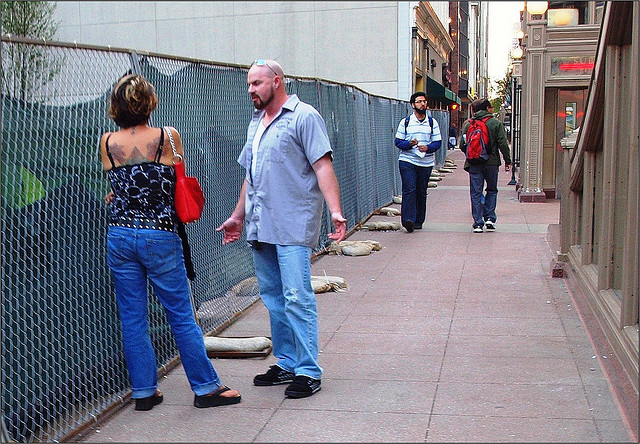Relationships are not 50/50.
They are 100/100, with each person bringing to the table the totality of who they are, their history, baggage, needs and desires.
What happens when that figure shifts and one member of the relationship decides that their 100 percent is the digit that supersedes that of the partner?
Take the experience of a woman (who has asked that her story be shared, for her benefit and that of others who may be in the same situation) whose husband decided that they would help him fulfill his dream of moving to the mountains of a state that was a long distance from the town where she had been raised and also from family members in another part of the country.
Love was the bond that brought them together and that, along with shared history, is what keeps them living under the same roof. She has expressed that she feels isolated and friendless in her current setting. Because of a physical disability, she is not employed. Her interests are not taken into consideration. She has shared with him that she wants to pursue additional education, take a trip to visit her family and engage in more fulfilling activities with him. His response is a shrug of the shoulders and a non-committal answer.
This woman relates that she has sacrificed her needs for his—not unusual for a woman of our generation. As she is nearing her sixth decade of her life, she is taking a stand to assert her own wishes. Not an easy task and one that takes courage. Counseling was suggested, but her husband is unwilling to pursue it. She is an intelligent, well educated professional who is distressed at the way her life has turned out.
This is what I would call a “my way or the highway,” marriage. When she has told him that unless things change, she will leave, even though she doesn’t really want to, he uses manipulative means to have her see things his way. Again, not uncommon in a co-dependent relationship.
I suggested that she take an honest look at what she would like to see occur in the marriage and communicate it calmly and sincerely with her husband, going for a win-win. I got the clear impression that she wanted reciprocity. Not too much to ask for in a long term union. My wise father would have called it “one hand washes the other.” He and my mother had “clean hands,” since their marriage was one which involved flexibility and negotiation that showed respect for each other.
R-E-S-P-E-C-T… Aretha had it right.
What are the characteristics of a “my way or the highway” relationship?
One person is the primary or sole decision maker.
There is blame and shame that is hurled back and forth as if they were hot coals.
One controls the finances and doesn’t allow for shared responsibility and access to funds.
One isolates the other and distances them from potential supports.
Jealousy about attention given to or received from someone else.
Wanting the partner all to themselves.
Passive aggressive behavior may be exhibited by either party.
Both partners may feel misunderstood and like a victim of the other’s behavior.
Gaslighting in order to gain the upper hand by denying making certain statements, accusing the other of disloyalty and encouraging second-guessing.
A “there’s the door” attitude can sometimes occur.
Conversely, a “you couldn’t live without me,” or “I can’t live without you” statement may also be uttered.
There may be (but not necessarily so) violence or threats of aggression.
Creating conflicts and picking fights to keep the drama going.
High intensity energy that may kick up levels of passion and with it over-the-top sex, only to return to the same pattern with little or no resolution.
So, what do you do if you recognize yourself in this scenario, or something remarkably similar?
You have a few choices.
You can stay and hope for the best. Not likely to effect change.
You can, either on your own or with the guidance of a family member, friend, therapist or clergy member, work on a communication strategy to express to your partner that the dynamics in the relationship are not working and that you want to make it mutually satisfying.
The relationship need not look like a see-saw on which one is up and the other down. Although love is a wonderful state of being, it isn’t always sufficient in and of itself, to sustain a union.
You can say farewell to the relationship if it is too unhealthy for you to continue on the merry go round that ain’t so merry. Living with someone who makes the highway of love a one way street, gives you license to leave.
~
Relephant Read:
Codependence VS. The Road To Becoming A Supportive Empath.
~
Author: Edie Weinstein
Editor: Travis May
Photo: Flickr/Erin Nekervis







Read 0 comments and reply